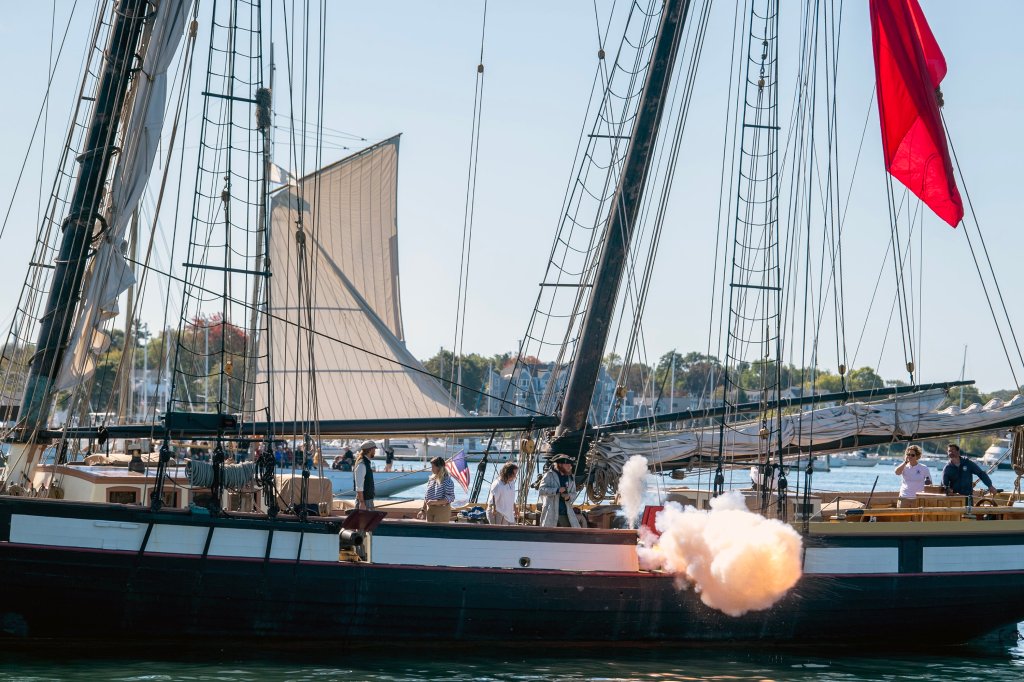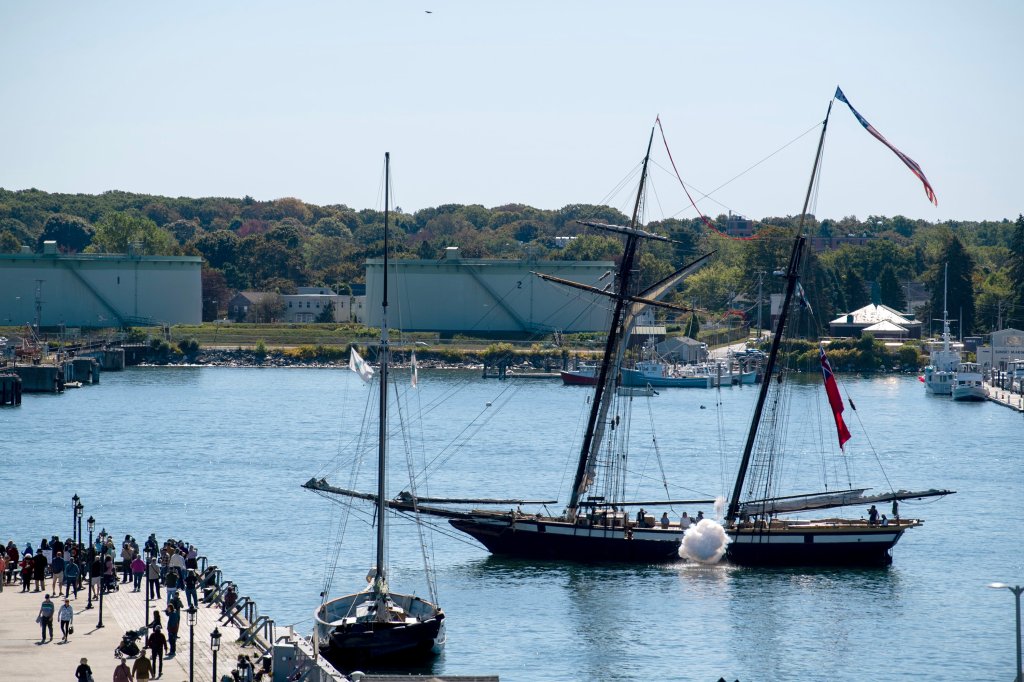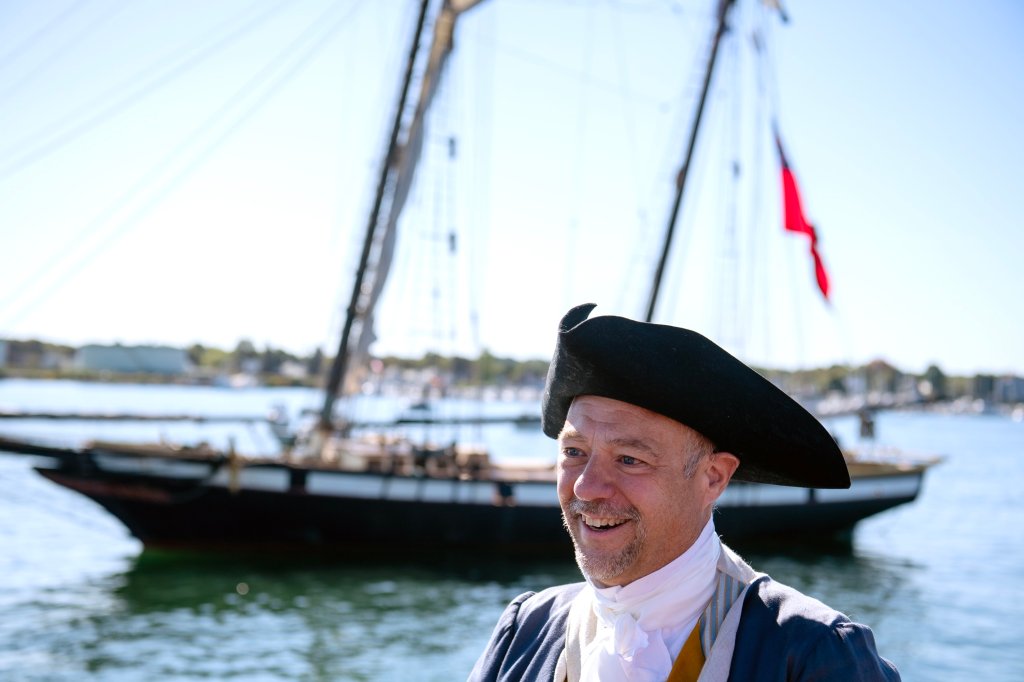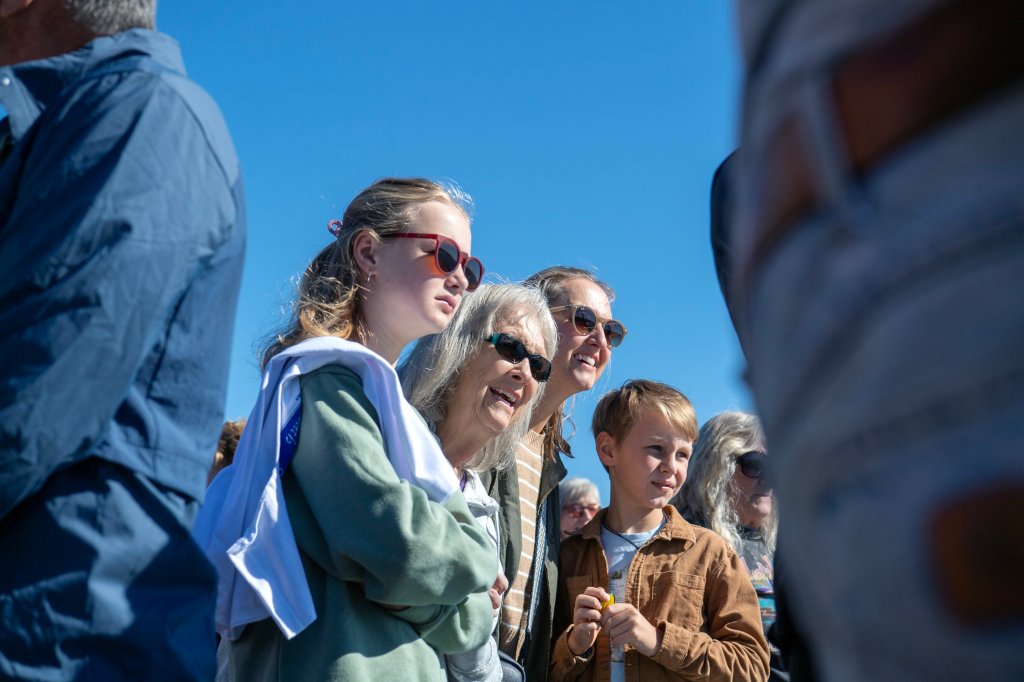
PORTLAND – Dozens of people crowded around the end of the Maine State Pier on Saturday to hear about an 18th century British naval attack that resulted in the burning of hundreds of homes and buildings in the early days of the Revolutionary War.
They held up iPhones to capture pictures of the Tall Ship Lynx, a replica 1812 schooner floating in the blue-green water nearby, and sipped coffees in the morning sunlight.
The crowd listened carefully during the recounting of what’s known as the Burning of Falmouth at what was then Falmouth, Massachusetts, but is now the city of Portland.
Then a sudden boom shook the pier as the crew aboard the Lynx recreated the firing of the carronades – heavy, short-barreled canons – that would have occurred during the attack. Smoke filled the air and barely had time to settle before another boom struck the pier.
The hourlong reenactment of the burning was part of a two-day commemoration of the 250th anniversary of the Burning of Falmouth in 1775 hosted by Portland’s Tate House Museum this weekend.
While the actual anniversary of the attack falls on Oct. 18, Holly Hurd, executive director of the museum, said the Lynx, which was brought in to portray the British ship HMS Canceaux, was not available that weekend. So the museum and partner organizations are instead using this weekend’s commemoration to launch a series of walking tours, exhibits and other events leading up to Oct. 18.

“A lot of people don’t like history because they have to read about it in a book and remember dates,” Hurd said. “But this kind of thing – bringing in the ship – it’s like living history … That’s why we’re doing this.”
The Burning of Falmouth was led by Captain Henry Mowat, who led five British ships, including his own vessel, the Canceaux, in an attack on the town of Falmouth in the early stages of the Revolutionary War. Cannonballs started flying about 9:30 a.m. in the morning on the 18th, and about two-thirds of the town was destroyed that day, Hurd said.
Miraculously, no one died in the attack, likely because of the fact that Mowat had given some advance notice and residents had time to evacuate, Hurd said. Still, it was a “really horrendous and cruel act,” she said.

Hurd said the Burning of Falmouth was later cited in the Declaration of Independence – though not by name – as one of the colonists’ grievances against England. “It was a big event in the American Revolution, and not a lot of people know that, that (what happened in Portland) is actually in the Declaration of Independence,” Hurd said.
Two-hundred fifty years later, visitors to the Maine State Pier got an up-close look at what it would have been like to see Mowat’s ships in the harbor setting off canons. Others had a chance to walk the Lynx when it docked for the afternoon near DiMillo’s on the Water.
“I’m glad they’re recognizing (the burning), because it’s a story that isn’t told very often,” said Chris Rudd, who came from Westbrook to watch the reenactment.

“I really hadn’t heard the story until we moved here,” said Rudd, who previously lived in Minnesota. “History is a love of mine and, overall, it’s a fascinating story. I think it could be a fantastic movie someday.”
Alyssa Lodewick, who lives in Portland, came to learn more about the history of the city. “I loved the commentary from the Tate House, and I really loved the hands-on – or ears-on – aspect of reliving the event,” Lodewick said. “I loved imagining myself being there and what it would have been like, and they did a great job helping me understand that.”

We invite you to add your comments. We encourage a thoughtful exchange of ideas and information on this website. By joining the conversation, you are agreeing to our commenting policy and terms of use. More information is found on our FAQs. You can modify your screen name here.
Comments are managed by our staff during regular business hours Monday through Friday as well as limited hours on Saturday and Sunday. Comments held for moderation outside of those hours may take longer to approve.
Join the Conversation
Please sign into your CentralMaine.com account to participate in conversations below. If you do not have an account, you can register or subscribe. Questions? Please see our FAQs.